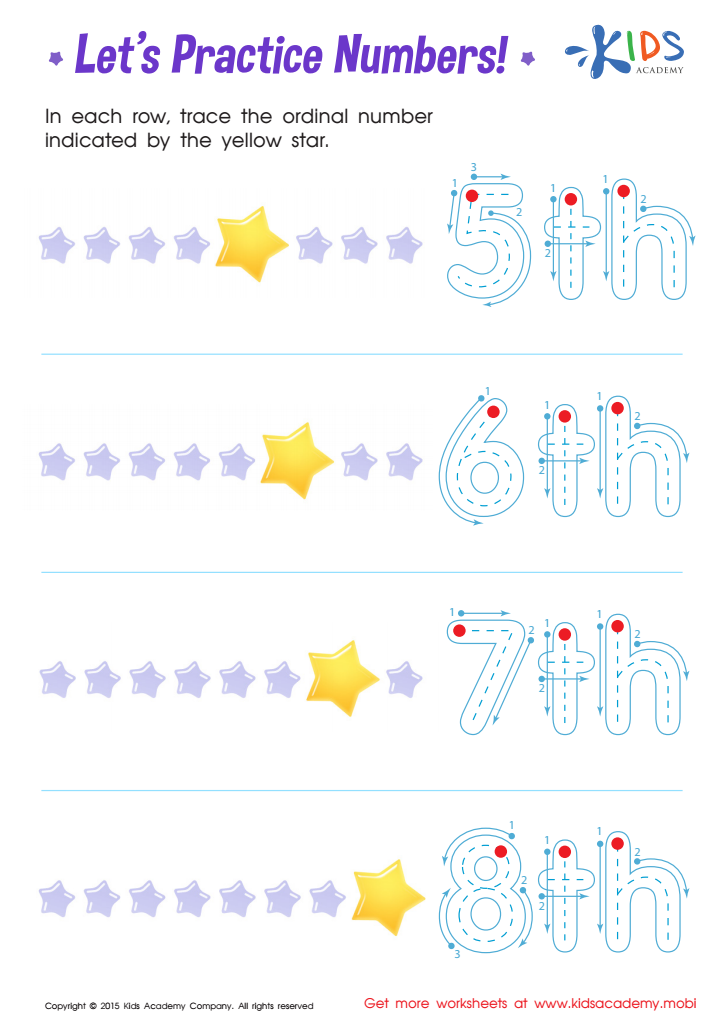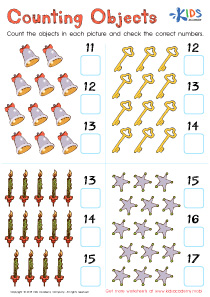Fine Motor Skills Normal Tracing Numbers Worksheets for Ages 3-4
6 filtered results
-
From - To
Enhance your child's fine motor skills with our engaging "Fine Motor Skills Normal Tracing Numbers Worksheets" designed specifically for ages 3-4. These worksheets provide a fun and interactive way for young learners to practice number tracing while developing essential pre-writing skills. Each worksheet is thoughtfully crafted to ensure the right blend of challenge and support, helping children improve hand-eye coordination and dexterity. With colorful illustrations and simple instructions, your little ones will enjoy tracing numbers while building their confidence in mathematics. Start nurturing your child's love for learning today with these delightful tracing exercises that make skill development enjoyable!
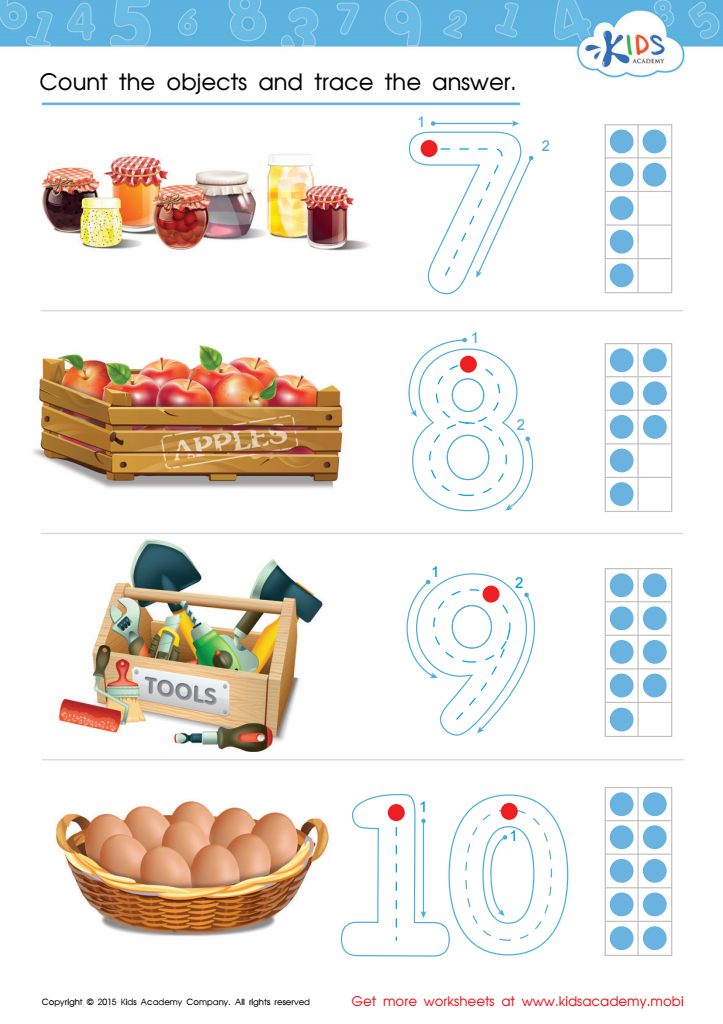

Count and Trace 7 – 10 Worksheet
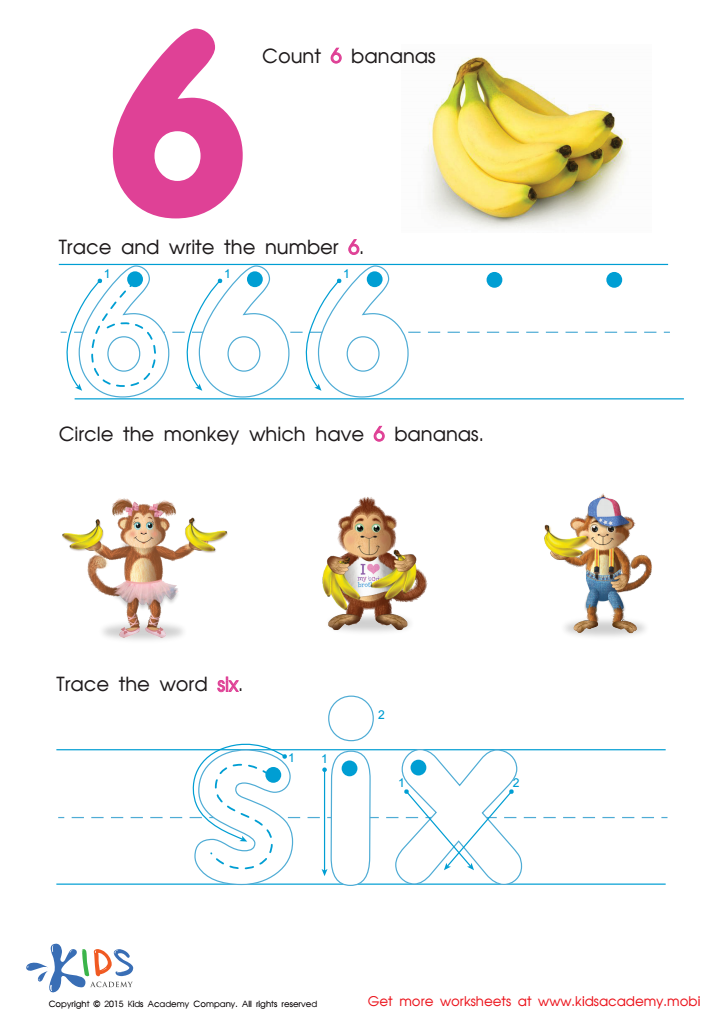

Tracing And Writing Number 6 Worksheet
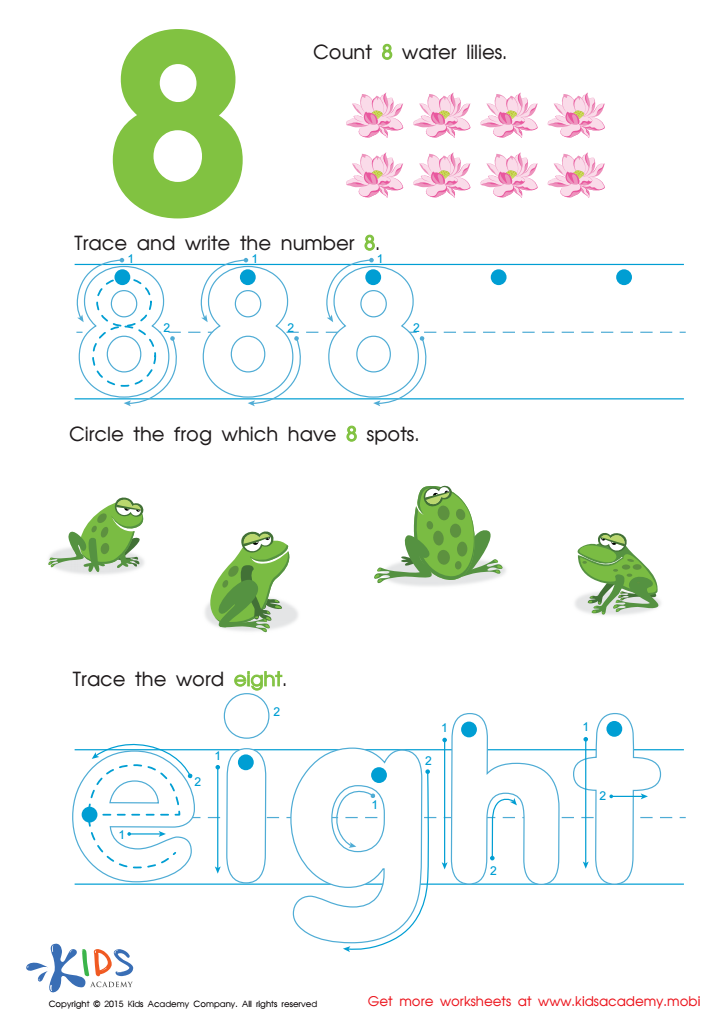

Learn Number 8 Easily Worksheet
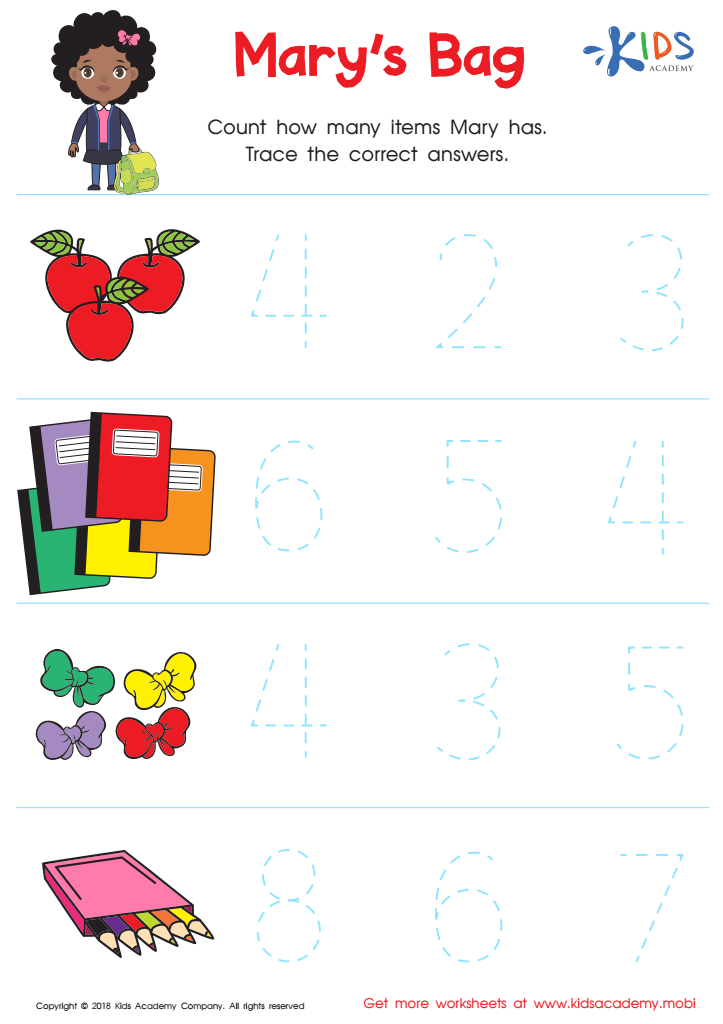

Kindergarten Number Tracing: Mary's Bag Worksheet
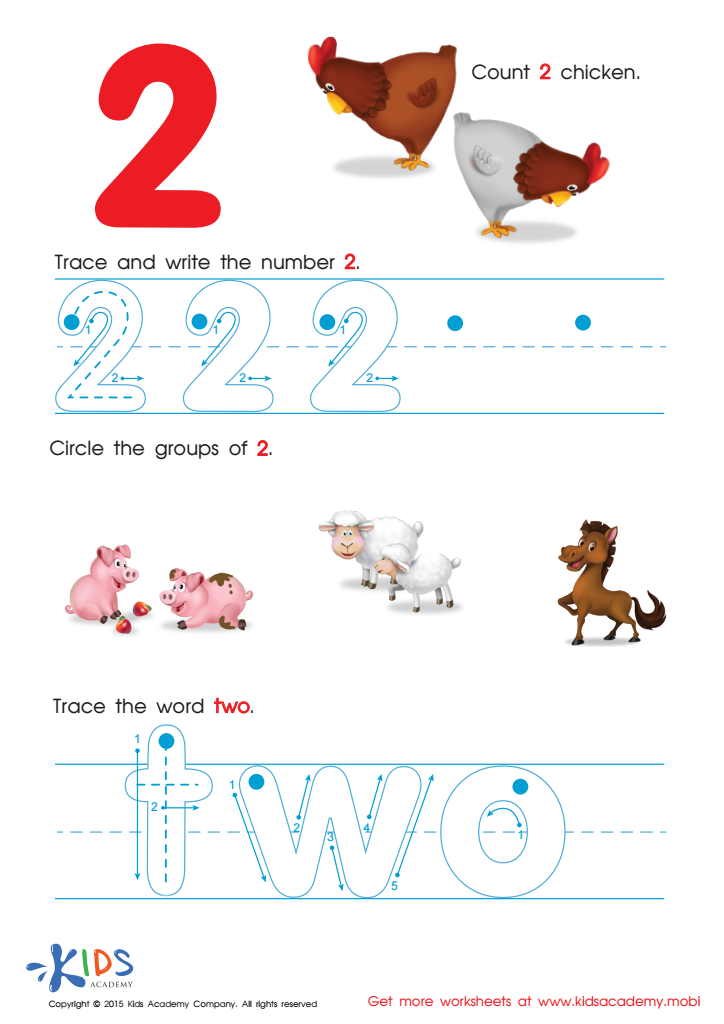

Learn to Write the Number 2 Worksheet
Fine motor skills are crucial for young children's developmental milestones, particularly for those aged 3-4. These skills encompass the small muscle movements in the hands and fingers, which are essential for daily tasks like writing, buttoning clothes, and using utensils. Engaging in activities like tracing numbers helps children strengthen these skills in a fun and interactive way.
When children trace numbers, they also enhance their hand-eye coordination, significantly contributing to their overall motor development. This process encourages concentration, patience, and a sense of achievement as they see themselves progress. Moreover, tracing numbers lays a foundational understanding for future mathematical concepts and literacy, helping them recognize and differentiate between numerical symbols.
For both parents and teachers, nurturing fine motor skills through tracing promotes not just physical development but also cognitive and emotional growth. Parents can easily incorporate tracing activities into daily routines, while teachers can use them to create structured learning environments. Ultimately, understanding the importance of fine motor skills at this crucial age supports children's preparedness for school and their ability to interact effectively within their surroundings, paving the way for successful learning experiences later on.
 Assign to My Students
Assign to My Students
